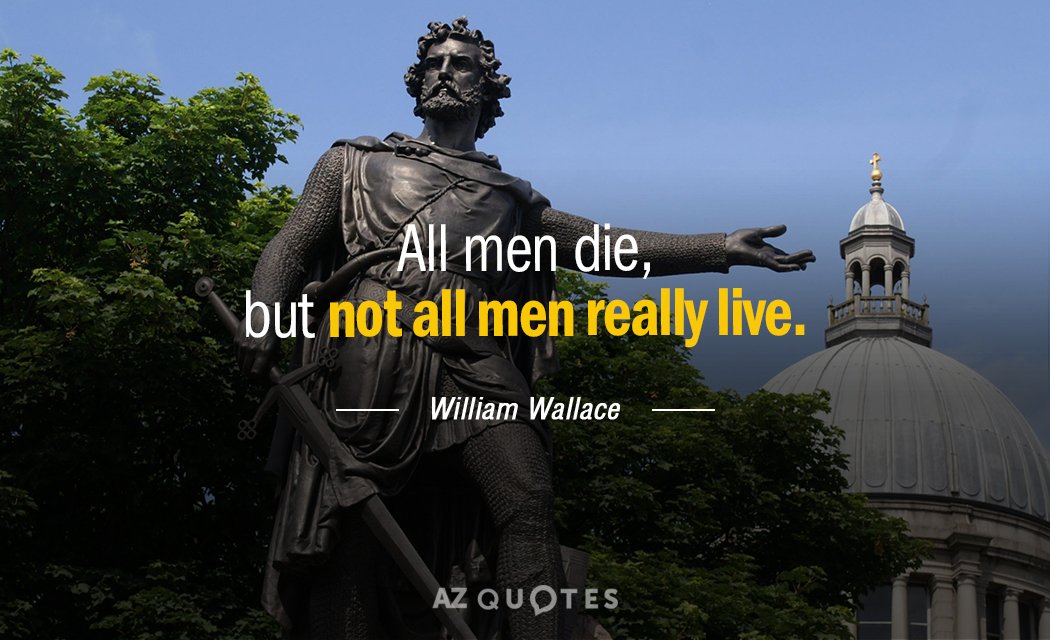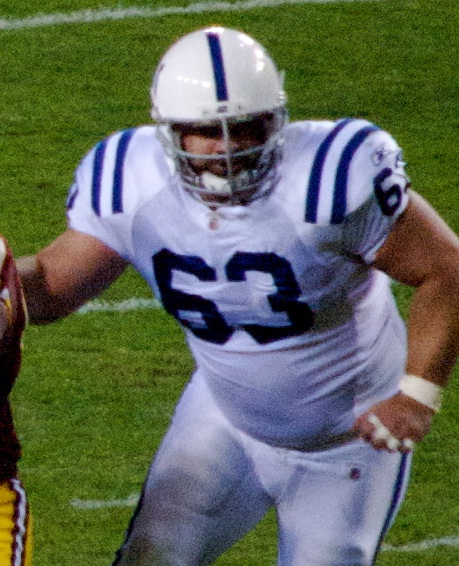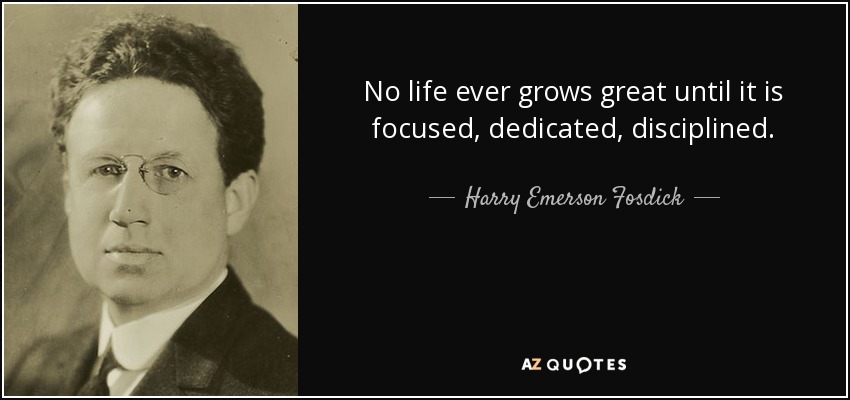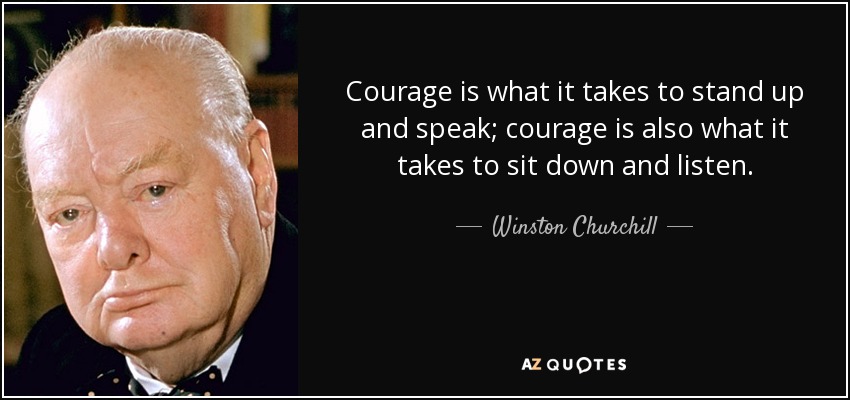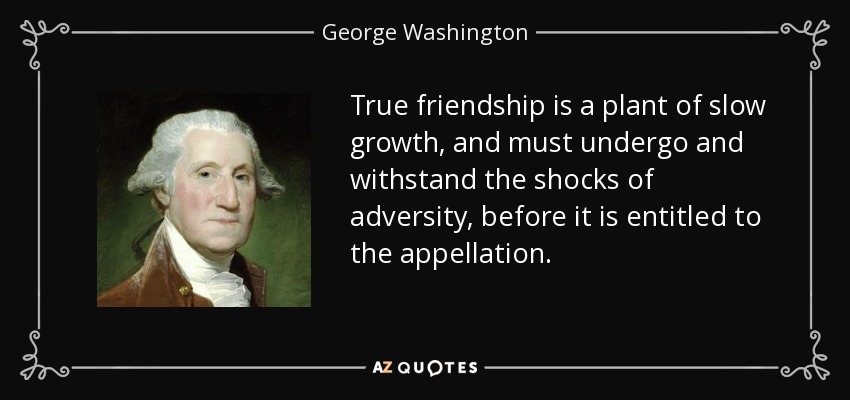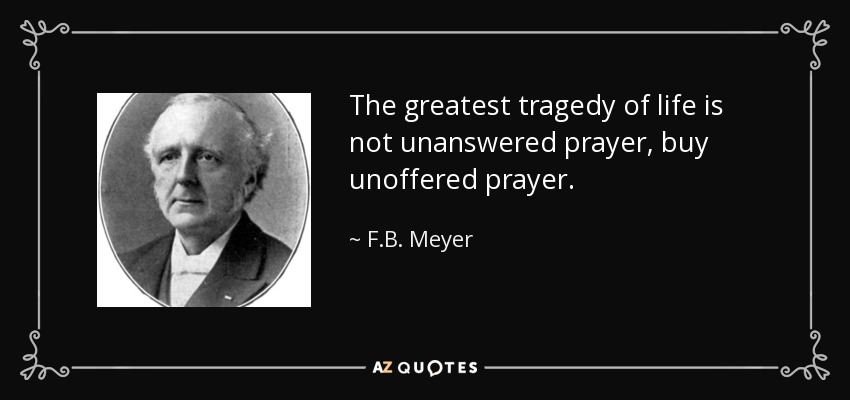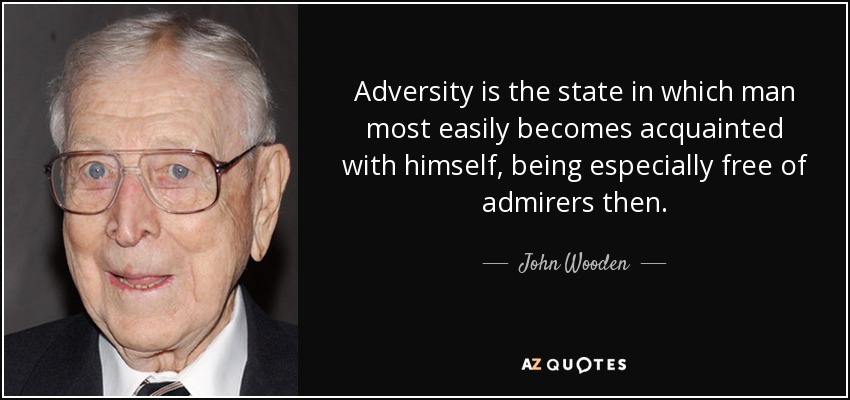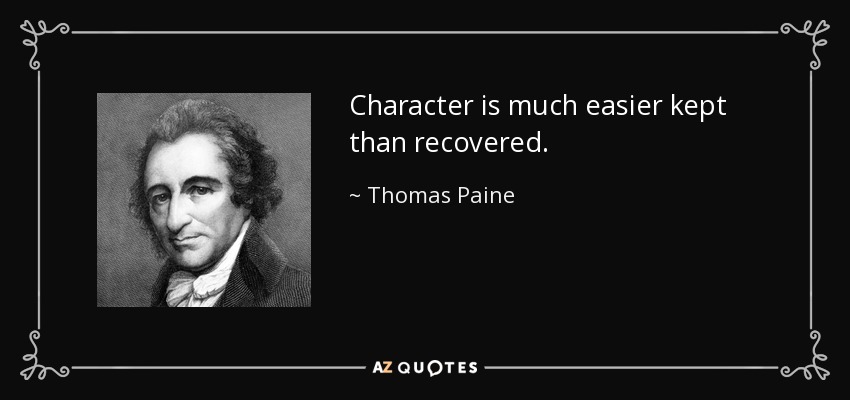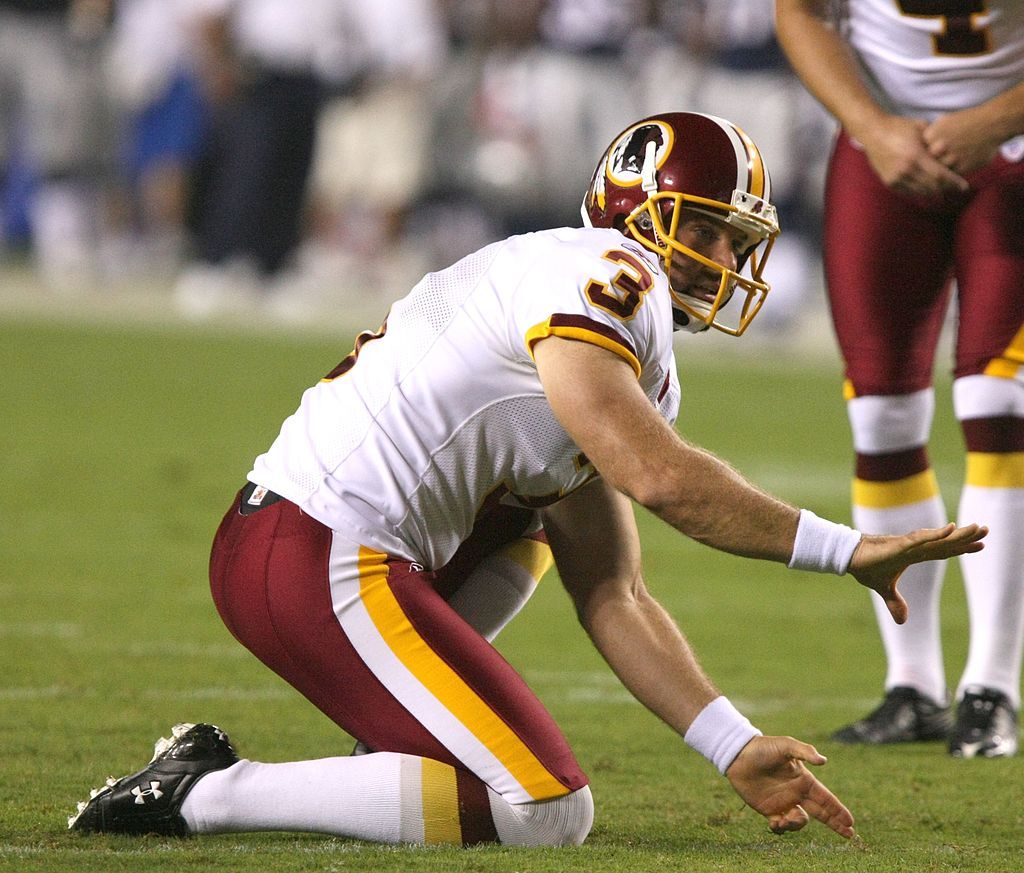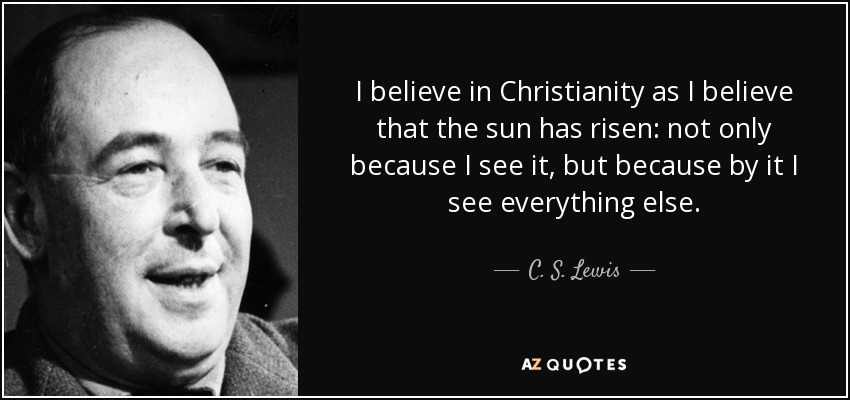Click here to return to Blog Post Intro
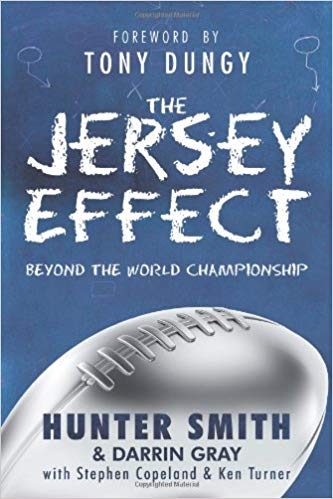
Hunter Smith
THE SUPER BOWL: THE JOURNEY IS MORE IMPORTANT THAN THE PRIZE
The Indianapolis Colts defeated the Chicago Bears 29–17 in Super Bowl XLI.
Smith noted that it was awesome to be a part of a team that accumulated 115 wins in a ten-year span—the most successful organizational decade in NFL history—but it took the team “forever” to win the big one, the Super Bowl.
Smith’s high school coach John Outlaw once told him, “They ain’t gonna put any of them wins in your casket,” which is a radical statement considering the NFL players he has coached (Bryan Gilmore, Terrence Kiel, Don Muhlbach, Rex Hadnot, and Dez Bryant) and the state championships he won.
Indianapolis Colts’ chaplain Eric Simpson delivered a devotional to the team the night before the Super Bowl. The text he used was Exodus 13:17–22: The Israelites could’ve had a direct shot to their destination by the Philistine way, the easiest route. But then God “led the people around by the desert road toward the Red Sea,” the longest route. He told the team, “Sometimes, our God is the Lord of the Longest Route.” The Colts should have won it all in 2005. They were the best team in the league that year.
But Smith contends, “God was concerned with the kind of people we would be when we did win. On the longest route, we were transformed and refined. That sanctification wouldn’t have taken place on the shortest route. As a result of the journey, many of us who won the Super Bowl were distinctively mature in Christ. The pain. The struggle. The fight. The humility. The persevering. It wasn’t easy. But it deepened every believer’s walk with Christ.”
Smith reflected that even though playing in the Super Bowl was a great experience, it was getting there that was a greater experience, because along the road—the longest road—is when you really get to know God.
The Colts were world champions, and they prayed after every game that season. And after the trophy was presented, the team went into the locker room and did the exact same thing.
Coach Dungy and Owner Jim Irsay made certain that first things were first—that God was glorified and magnified in that celebration, even above the rings themselves.
On one side of their Super Bowl ring was the word “Faith,” which represented the faith that characterized the 2006 team. On the other side were the words “Our Time,” which was the theme for the Colts going into the championship.
Not many players reach the pinnacle of success and become Super Bowl champions. Smith says that the worldwide attention you receive is incredible, but goes on to explain, “Emptiness. I remember feeling it on the field after the game but fighting it off and just trying to enjoy the victory instead. This was the Super Bowl, after all. I felt it even more on the plane ride back to Indianapolis.”
THE JERSEY EFFECT
Smith’s book is about two things. It’s about the influence a jersey can have on the athlete who wears it and about the impact an athlete can have with his or her jersey. That’s the heart of the jersey effect. It’s about recognizing the potential harm a jersey can cause—the self-centeredness, greed, immaturity, larger-than-life mentality, and obsession with this world—but also the potential power one’s jersey has for the good of society and, most importantly, the good of Christ’s kingdom.
Sports have the power to unite us and divide us, to ignite deep passions, to build community, and to amplify the voice of the athletes and coaches.
Coach Dungy, who passionately believes in The Jersey Effect, teaches that athletes must grow in four key dimensions: academically, athletically, socially, and spiritually. According to Tony, the jersey effect represents a powerful way to live your life.
Tony says that the NFL is a “laboratory for life” where most people around you have taken sports out of perspective and made it the “end all” of life’s focus. Fame and fortune can hijack even the most well-intentioned players.
Athletes in particular are raised to believe they’re important. Because of their skills, because of their performance, they are told by family, coaches, and friends that they’re important. Importance, however, is performance-based. Importance doesn’t last. As a result, what we’re doing as a society is raising people who are very important. But they don’t have value. Then, when athletes finish their careers, their importance is stripped away and they don’t see themselves as valuable.
How do you teach value over importance? Understand that you, yourself, are valued. Jesus Christ died on the cross for you. Without Jesus, you’ll go through life trying to feel important.
In an interview a few years ago on 60 Minutes, New England quarterback Tom Brady said exactly this: “Man, I’m making more money now than I thought I could ever make playing football. Why do I have three Super Bowl rings and still think there is something greater out there for me? Maybe a lot of people would say, ‘Hey, man, this is what it is. I have reached my goal, my dream, my life’—me I think, God, it’s got to be more than this.”
Jeff Saturday
AFTER THE VICTORY: DIVINE APPOINTMENTS AND DEFICIENCIES OF THE HEART
Coach Vince Lombardi once said, “I firmly believe that any man’s finest hour, the greatest fulfillment of all that he holds dear, is that moment when he has worked his heart out in a good cause and lies exhausted on the field of battle—victorious.”
The only difference in the Super Bowl and any other major NFL game is the media attention. That’s it. But it doesn’t matter; people will continue to put you on a pedestal because you have a Super Bowl ring. And you can either shrug it off, realizing you aren’t any different, or you can believe the lie that you truly are something special.
Success reveals deficiencies in your life. There’s just something about this world that begs you to serve it.
After his contract in 2004, Jeff Saturday was presented with a plethora of opportunities. In hindsight, he recognizes that he should have heeded the advice he gives his own kids when he tells them, “Don’t just do things for the sake of doing them; do things because you feel this is what God has called you to do. Do things God has given you the heart to do.”
Saturday explains, “Making more money became the subtle thing that crept into my life and actually revealed a deficiency in my character. After a while, I became so swallowed up in trying to keep up with business deals, it began to run my life. Between my contract in 2004 and the Super Bowl, I was dealing with character flaws revealed by success. This ‘chasing of a dream’ for me became success in business. But as I chased it, I became the ‘double-minded man.’ I strived for worldly prosperity.”
Sadly, this concept has also penetrated the church. The “prosperity gospel” that many Christians hold to in our culture is not a biblical concept. Of course, God blesses people for making right choices, but they aren’t necessarily financial blessings. They’re spiritual blessings.
Your financial status is not God’s stamp of approval on your life, nor is your lack of finances. The issues of your heart, the person you are in the core of your character, are far more important than the amount of money in your bank account.
Hunter Smith reflects, “Becoming a Christian icon like Tony Dungy became a goal for me. And ironically, it wasn’t about God. It was about me. As I was sitting in the kitchen, this phrase came to me: ‘a time to die.’”
Success causes the death of so many prosperous people and is spiritually destructive. We need to surrender the control to God. He alone makes our names great. Too often, we strive for success more than we yearn for God’s presence. It’s time to die to everything this world has to offer.
Ben Utecht
DEDICATION, DAD, AND A DISTRACTED HEART
“The greatest gift I ever had came from God; I call him Dad.” –Author unknown.
After the AFC Championship game, Jim Irsay stood up to the microphone and said, “First we want to give glory to God.”
Utecht reflected, “But the two weeks leading up to the Super Bowl were such a transition from the proclamation of giving glory to God to being completely swept away in the world. When you are a Super Bowl team, it’s as if, suddenly, you are the focus of the whole world. The playing field had become my field of selfishness.”
Distractions occupy your attention. They shake your foundation. And after the occupying and the shaking, they poison your heart. Why? Because the distraction becomes more important than the foundation. That’s what happened in Luke 15 in the familiar Prodigal Son parable. The son neglected his roots and focused on himself instead. His world became “a field of selfishness,” where he “squandered his wealth in wild living.”
Distractions are like termites that eat at your house for as long as you let them, until, eventually, your home is in shambles and you’re a lost soul. Distractions destroy.
How do you build your life on the right foundation, especially as an athlete? The New Testament book of Matthew speaks of building your life as if you’re constructing a house. The wise man builds his house (or life) upon a rock. The foolish man builds his house (or life) upon the sand. The sands of success and status will eventually blow away, but a lifestyle built on a relationship with God will stand because it’s on solid rock.
What are you building your house on? Is it being built on the sandy foundation of success, status, and money? Or is it being built on a rock-solid foundation? The earlier you decide, the better your life will be.
Dylan Gandy
AMBITION AND EXPECTATIONS: DON’T LET YOUR GIFT BECOME YOUR IDOL
Life is filled with moments where we find ourselves either playing a bigger role than we expected or playing a smaller role than we envisioned. Ambition and expectation can be great sources of fuel that keep us motivated to accomplish great things. But if our ambition and expectations are unfulfilled, we can end up really struggling to find joy in it all.
What if you prepared your whole life to play in the big game and your number was not even called—does it diminish the experience?
Gandy explains, “During that 2006 season, and several other times in my life, I allowed football to become an idol. Life needs to be about an eternal perspective. It’s about using your platform—and even using it on a more personal level with the guys in the locker room. I really believe that platform can actually have more of an impact and is critical to the overall mission of Jesus Christ.”
When your idol isn’t treating you well, it will eat at you and slowly destroy you.
There is life after football. There’s life after whatever you idolize.
Movies, the music industry, athletics, government, education, video games, technology, gambling, pornography, drugs, alcohol, fashion, finances, and the food industry have one thing in common: they exist based upon their ability to make us want more.
It was St. Augustine who said, “You have made us for yourself, O Lord, and our hearts are restless until they rest in you.” We’ll chase importance until we find value.
John 6:48 says, “I am the bread of life.” Jesus wants a deep relationship with us, while our culture talks about doing, doing, doing.
The Indianapolis Star had an astounding headline the day after the Super Bowl victory: “Can Colts Repeat in ’07?” This made it crystal clear in our minds that nothing was going to satisfy this ravenous need for more. The institutions of man were not made to fulfill. They were created by man, for man, to achieve his purposes, designed specifically to evoke one response: hunger.
Gandy cautions, “Anchor yourself in the truth. Don’t anchor yourself in a false world, because one day that false world is going to vaporize.”
Matt Giordano
A CHAMPION FOR CHRIST OR A CLOSET CHRISTIAN
Jeb Dickerson once said, “If the light in your life has changed to yellow, I recommend you floor it. It’s safer than the alternative.”
Giordano explains, “My Super Bowl struggle was unique in the sense that I used a good principle to justify wrongdoing in my faith. I decided I wanted to be humble in my response to winning a Super Bowl because that would fit what God desires for us. I thought about how I might choose a path of humility, which I interpreted as a path of silence. I regret that decision. Now, I realize that ‘pursuing humility’ was a cop-out for not sharing my faith. I was supposedly being humble, but really I was just being silent. As I look back in regret, I realize how much more I could have proclaimed Christ.”
Giordano recognizes that his “jersey effect” could have been so much greater. God desires to use those who make themselves available to him. Maybe instead of saying, “God, use me,” with our own intentions already in mind, we might more accurately say, “God, help me to be usable.”
God doesn’t always use the most talented. It’s not always the people who have accomplished the most. It’s the people who are usable. It’s the people who take their responsibility to preach the gospel seriously. So many times in this day and age, we try not to offend people. In the “name of love,” we don’t preach the gospel because we don’t want to make someone angry. But the truth is this: the world is out there looking for the answer. And it’s our responsibility to give it. We weren’t made to back down. We were made to step up.
Galatians 5:19–21 perfectly describes the pernicious state of an NFL locker room and the struggles of high-profile athletes. It says, “The acts of the flesh are obvious: sexual immorality, impurity and debauchery; idolatry and witchcraft; hatred, discord, jealousy, fits of rage, selfish ambition, dissensions, factions and envy; drunkenness, orgies, and the like. I warn you, as I did before, that those who live like this will not inherit the kingdom of God.”
God can bless athletes and coaches who are willing to stand up for the Lord, and when they are persecuted for their boldness, it can bring real joy. I think that God’s heart is revealed in Matthew 5: 13: “You are the salt of the earth. But if the salt loses its saltiness, how can it be made salty again? It is no longer good for anything, except to be thrown out and trampled underfoot.” Athletes and coaches need to train to be salty, so when they do stand up, they are equipped and take seriously their responsibility to positively affect the world around them.
The reputation of the Indianapolis Colts 2006 team was, for the most part, as squeaky clean as it gets in professional sports. People have asked if all of the coaches and players were Christians—as if Owner Jim Irsay and General Manager Bill Polian simply took a group of choirboys and threw jerseys over their robes. Yes, there are people who have this perception, and it is both outlandish and powerful. Outlandish because the reality is that only a few of those players and coaches follow Christ. Outlandish because Giordano saw the outright hedonism of some of his teammates. But also powerful because of the overwhelming strength of the light of Christ in a few men who, even when outnumbered physically by the darkness, overcame darkness by the power of Christ in them.
Clyde Christensen
SACRED COMPANIONSHIP
As Quarterbacks Coach for the Indianapolis Colts, Clyde had a lot of long talks with Head Coach Tony Dungy. They both wanted three things in their careers: (1) prioritize family, (2) do well at the level they coached, and (3) use their platforms (or jerseys) to make an impact.
After the Tampa Bay Buccaneers named Tony their head coach, he called. “Clyde,” he said, “I need you to come down here and be my partner. We’re going to try to win a Super Bowl, make an impact on this league, and have an impact on Tampa.”
In 1996, they started going through the one-year Bible together. As of the writing of this book (2012), they were on their seventeenth consecutive year, and several other coaches, primarily on the Colts staff, go through it as well. Doing that took their friendship to another level.
Christensen explained, “It united us as brothers—as sacred companions.”
Quality moments happen during large quantities of time spent together. Lives are perfected in relationship with others.
They teamed up with Family First, a national program that strengthens families and has now impacted millions across the nation and called it All Pro Dad.
Our culture neglects sacred companionship—iron sharpening iron, spiritual accountability and refinement, and challenging one another to be more Christ-centered and pure.
There are four levels of accountability:
- Be accountable to God. Consider how sin grieves God’s heart.
- Be accountable to someone above you: someone who has a place of authority in your life.
- Be accountable to someone beside you. This is your peer. The person who is on your level.
- Be accountable to someone beneath you. Establish a friendship with someone who is younger and looks up to you. Allow that friendship to motivate you to not disappoint those who are watching you.
In John 15, Jesus said, “You have not chosen me, but I have chosen you. I chose you that you should go and bring forth fruit and that your fruit should remain.” That’s broken down like this: (1) choose a friend based on your ability to impact that person (I have chosen you), (2) choose a friend with a goal to make them more successful (more fruitful), and (3) choose a friend with the intention to make a lifelong impact (fruit that remains).
There are also three categories of influence within friendships you need to consider. Who am I trying to influence? Who are my influencers? And who am I allowing to influence the character of my life?
That’s a main concept of the jersey effect: 360 degrees of influence. One, how does your jersey influence the wearer of the jersey? And two, how can you use your jersey to influence others? But how do you make an influence at church, in your household, in the locker room, or in the workplace without deep fellowship and sacred companionship?
Tarik Glenn
FOOTBALL DOES NOT DEFINE ME
Tarik Glenn notes, “I could have gone another year. No doubt about it. I probably could have played several more years. That’s what stumped people. My career was still peaking, in a sense. Players asked me to reconsider my retirement announcement. Coaches asked me to reconsider.
Football had become my identity, especially after the Super Bowl. I had experienced what the world could supply in all its riches and fame, but I wanted to get away from the world’s provision and have all my identity and all my supply come from the one source of Christ Jesus. That’s why I retired.”
When we lose, Christ becomes the source who meets our needs. God used those losses in Glenn’s life to build his testimony and strengthen his faith.
The reality is this: our society places too much value on professional sports. It is part of our culture. Glenn reflects, “I experienced a true lack of fulfillment after the Super Bowl victory that I didn’t expect to feel. But through that experience God began to show me some of the greater satisfactions of life that are actually more fulfilling than a Super Bowl.”
Glenn has begun to teach his kids that even in conversation at home, sports are not the center of it all. Our friendships with others, our relationship with God, and even our family vacations are more important than the kids’ commitment to sports.
Glenn notes, “I’m concerned about parents who put their kids so deeply into sports that it requires excessive weekend travel, demands large commitments of time, and takes away real family life. I just want to tell them, ‘It’s not that important.’ Football isn’t supposed to be the thing you ‘sell your soul to.’”
Coach John Wooden once said, “Sports don’t build your character. Sports expose your character.” The learned traits of teamwork, discipline, and dedication are great assets. If a player comes out of sports with a completely balanced life … that is truly the measure of success.
Some athletes have never learned Tarik Glenn’s lesson—that sports do not define them.
Perhaps Os Guinness said it best, “We are not primarily called to do something or go somewhere; we are called to Someone. We are not called first to special work but to God. The key to answering the call is to be devoted to no one and to nothing above God himself.”
Jim Caldwell
THE POWER OF PRAYER AND THE PROTECTION OF GOD
Caldwell fundamentally believes that prayer is the lifeline of our spiritual lives. As he puts it, “When I lift my prayers to the Father, I know that in some sort of time, the Lord will answer them. I believe in prayer wholeheartedly, and that’s why I have a dedicated prayer life. I prayed for Tony a lot during that period—that the Lord would elevate Tony for his own glory and that God would do something remarkable through Tony. When we brought the Vince Lombardi Trophy to the city of Indianapolis and gave God all the glory. It was as if God elevated Tony for all he’d been through, just like I prayed. And Tony gave glory back to God. It was a beautiful thing.”
But here’s the thing about prayer: it’s important to be persistent, but it’s not about simply checking something off your to-do list. The purpose of prayer isn’t about getting things done; it’s about knowing the Lord. It’s about being alive. It’s relational time.
Caldwell reflects, “Looking back, I don’t really miss playing the game—but I miss the Friday afternoon Bible studies, prayers in the locker room, and reflection time in a conference room on game day mornings. That’s what I miss.”
The real jersey effect is impossible without prayer. The jersey effect will be about you if it’s not about God. Without prayer, we can do nothing. But with prayer, God can do anything through us. Prayer is our lifeline.
Reggie Hodges
COMPETITION: A MAN-MADE ENTERPRISE
Indianapolis Colts backup punter Reggie Hodges found himself consistently on the verge of making an NFL team or being cut. He was barely surviving financially, swimming in a pool of self-pity every time he got cut, living with his fiancée, drinking like a frat boy, hardly working to become a better punter, while expecting to have a successful career handed to him.
He explained that he had spent fifteen years hiding from the Lord, masking himself with drugs and alcohol. Hanging around Hunter Smith all summer made him realize his purpose in the NFL: kick the ball well and lead men to Christ. His purpose was to use football as a ministry, something he had never even considered.
As he wrestled with pride and idolatry, God was constantly showing him that he needed to be dependent on him. That’s where true growth takes place—when our futures and identities are placed in God alone.
After his dreams had been crushed seven times, he finally signed a deal. He gave money to his parents, to ministries, and told his fiancée that all he wanted to do was give the money away. On top of that, he was doing what Hunter taught him to do. He was ministering to his teammates. That was his purpose. Football was secondary. All he cared about was bringing glory to God.
God uses trials to magnify your ministry; therefore, embrace your trials.
Then, Hodges told this story, “One night, in a particular moment of wrestling with the Lord, I sensed God whispering this truth to my heart: ‘I have not called you to be a competitor. I’ve called you to be a warrior.’ See, competition is for earthly trophies. Being a warrior is for a kingdom. Competition for earthly purposes is meaningless. But if you’re a warrior, you’re fighting for something that has lasting value.”
We’re told to not conform to this world. We live in a society fueled by competition. In America, it’s all about winning. It’s about being on top. But our capitalistic mindset tends to intrude on our Christianity. And instead of supporting one another, even when we are being competed against, we put ourselves first. It hurts our ministry because witnessing can’t be self-centered. And unfortunately, that’s what competition can do.
Competition is a pattern of this world. Putting others down to elevate yourself is also a pattern of this world. John 3:30 is only eight words long, but it’s radical in our culture: “He must become greater; I must become less.” John the Baptist, though the center of attention and attraction, understood what his role was. He was paving the way for the Lord.
Another passage that must be mentioned regarding competition is Matthew 18:1–4, which says, “At that time the disciples came to Jesus and asked, ‘Who, then, is the greatest in the kingdom of heaven?’ He called a little child to him, and placed the child among them. And he said: ‘Truly I tell you, unless you change and become like little children, you will never enter the kingdom of heaven. Therefore, whoever takes the lowly position of this child is the greatest in the kingdom of heaven.’”
Competition means striving to defeat someone. But the truth is that you can’t follow Christ and try to make yourself great. They don’t go together.
Justin Snow
FREE PASS: CORRUPTING INFLUENCE
For some athletes, the NFL makes you believe you are your own god. Success makes you believe that you’re the center of the world and you’re invincible.
Snow explains, “Whenever I went out, my drinks were free. My meals were free. I didn’t have to chase girls, because they chased me. All because I played football for the Colts. And before you know it, you’re into the money, the women, and all of the material things the devil throws at you. Money and greed are home runs for the devil…and Satan got me.”
When young athletes start receiving attention in their lives, they will inevitably start to pay more attention to themselves as well. After all, everyone else focuses on them (including parents, coaches, and fans), so why shouldn’t they?
The result of this pattern of development in a young Christian athlete’s life can be the gradual hijacking of any good he hopes to accomplish through his platform. They may have initially felt a call from God to do great things and reach the high places of culture through the language of athletics, but their intentions are often poisoned by self.
In reality, athletes oftentimes receive special treatment and preference that allows them to shirk the responsibility that was God-given. It’s more about living up to God’s expectations, rather than the expectations of men—which can end up showering prominent people with favors.
After years of free passes, free dinners, free tickets to concerts, favors, and front-row seats, an athlete can hardly help but develop an attitude of “free passes.” Our culture shapes the mindset of the athlete into believing, “You take care of the football, and we’ll take care of you.”
Sadly, there are so many athletes who don’t get their lives in order after all those free passes. They struggle after their sports careers because they literally do not know how to make it. They aren’t accustomed to the work ethic and relentless determination that is required to be successful in the real world.
If you have an adequate understanding of the holiness of God, a fear of the Lord, and a real understanding of who Jesus is at a young age, you won’t be sidelined in life by a crippling mindset of the free pass. If your roots are in the biblical Jesus, if you have received biblical salvation, that will change the way you view all of the perks and the way people see you.
Have you noticed that the older a player gets, the harder he works? And all that hard work develops into success, which leads to more free passes. The free perks can develop a mindset in an athlete that distorts his view of who he is and where his true value comes from.
What the free pass does is make you self-seeking because you realize all that you can get, which, in the end, makes you selfish. The free pass makes you believe and trust in your own importance.
The Jersey Effect According to Tony Dungy
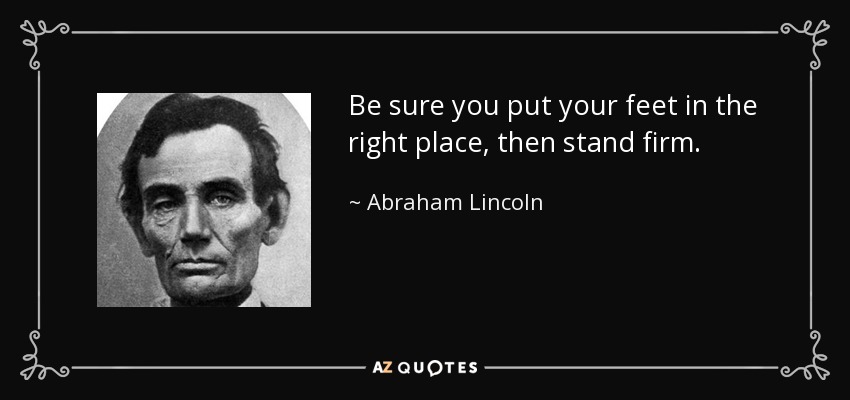
A man who loves God and other people is a man who changes the world. That’s what God used Tony Dungy to do with the Indianapolis Colts. Time and time again, we see an athlete’s faith hijacked. And the hijacker is what Christ calls “the cares of the world.”
It’s essential that you keep your desire to be used by God at the forefront of your mind and intentions. Though God doesn’t frown on us working hard in our careers, or working for our families, or working for a Super Bowl, he does frown when those things become our gods.
You need to try to grow in four ways—academically, athletically, socially, and spiritually. Unfortunately, in our country, we tend to focus on one or two of these areas and ignore the others.
Tony shares this story, “I walked into my first team meeting as an NFL player with my notebook and pen. ‘For you new guys, welcome to the NFL,’ [Pittsburgh Steelers] Coach Noll said. ‘But you need to understand that this is not your life’s profession. Just because you get paid to do this doesn’t mean this is your profession for life. Football is not life. Football is not your life. Part of my job is to help you get ready for your life’s work.’ I learned early on in my NFL career that sports is a great ‘laboratory for life,’ but you have to keep it in perspective. You see, most people around you have taken sports out of perspective and made it the ‘end all’ of your life’s focus.”
Here’s the real truth about sports straight from the NCAA. Over forty million kids play at least one organized team sport. Of all high school varsity football players, less than 6 percent will go on to play college football, and that’s even if you include Division III schools where scholarships are not allowed. Of the few who do play college football, less than 2 percent will get drafted into the NFL. The sobering statistics do not lie.
Football may be a profession for a temporary season of life, but football cannot be a life profession, and more importantly to Dungy, football is not his “purpose.”
Dungy reflects on Coach Noll, “He was far more interested in developing us as people than developing us as players. So take my advice and develop yourself as a person first and as a player second. The idea that winning the Friday night football game is the most important thing in our city is a flaw in our value system. It’s great to run out on the field prepared to bring a victory to our team and our community, but it’s not the life-or-death situation our culture has made it out to be. This is the reason we don’t have enough coaches like Chuck Noll around anymore—because we don’t reward the true value system as we should. Our culture rewards the coach who wins no matter what … not the coach who does things the right way.”
As a young player, the Super Bowl experience taught Dungy a big life lesson. If you get your identity caught up in an event like a Super Bowl, you are in for a tough fall.
Dungy goes on to say, “But the validation of who I am and where my identity comes from does not lie in a championship ring. My identity, my value, and the validation of me as a person come from my foundational relationship with God. But the world will always focus on comparisons; what we accomplish in sports is always compared to what someone else has done. It’s a never-ending cycle, and it stands in a position to destroy you if you are not rooted in something bigger than wins and losses.”
Understand this about God: the thing that is so different about the way God validates a person is that God doesn’t validate us by wins and losses. You really have to look at yourself from God’s standpoint and define yourself from God’s criteria. Seek to be a leader, not only athletically, but guide your teammates and others around you off the field as much as you would on the field. Don’t just make a difference on the field, because at some point that’s all going to be over.
Unless you really make time to grow spiritually, it can get away from you, and your spiritual growth will be stunted.
In the world’s eyes, we desire to be remembered by a great victory. Because winning is glorified at a higher level by man than by God, we miss opportunities that God can use in our lives through defeat. You can have a great impact on people after a loss.
Dungy explains, “A lot of people over the years have come to me to express their appreciation for the way we handled winning the Super Bowl with the Colts. But I have had far more people come to me to share how they were inspired by the way I handled being fired by the Tampa Bay Buccaneers. People can’t necessarily relate to being an NFL coach, but they can relate to losing a job or circumstances that send their world into a tailspin. I’m not saying I didn’t feel the pain of being fired, but I knew in my heart that God was in control, and the biggest thing in my life was not football, but God. That really helped. People can really relate to adversity and defeat.”
Hunter Smith says, “Tony’s life encapsulates the jersey effect more than anyone I know. And what he just wrote captures the jersey effect perfectly, specifically in athletics. I respect Tony Dungy. But many Christians put him on a pedestal. I’m thankful he shared some of his personal struggles while he was a young athlete. That’s what is so great about Tony. He’s willing to be transparent. At the end of the day, Tony Dungy is just a man—an influential man—but still just a man. But I’ve never had another coach like him. Tony taught me that my life is not defined by football, but it’s all about the impact I could make when I was willing to wear my jersey in the proper perspective. What Chuck Noll was for Tony, Tony was for me.”
The Snap
In December 2010—a little more than three seasons after the Colts’ Super Bowl victory—Hunter Smith allowed the snap to pass through his hands, and they missed the game-tying extra point attempt, losing to the Tampa Bay Buccaneers 17-16. Smith was cut by the Redskins following the game.
Smith reflects, “How was my jersey effect going to be remembered in the face of adversity and defeat? As absurd as it sounds, winning the Super Bowl and dropping a snap in front of sixty-six thousand people had a similar feel. They were both windows into the soul. In both instances, the world betrayed me. The veil was pulled away, and I could see the world for what it really was. It’s not fulfilling. It’s not rewarding. It’s empty. But on the other side of that horrible experience, God was still there, and he was the same. God was for me.”
If your life is built around importance, you’ll live a life replete with roller-coaster circumstances and inconsistent emotions. Dropping that snap was frustrating for Smith, of course, but because he understood his value as a person—that his identity was in Christ—he knew he’d be fine. He was still valuable. He was still loved by the source of love. The truth is God exists outside of our consequences, our goals, and our outcomes.
In the midst of that moment of defeat, God impressed on Smith’s heart that his jersey as an athlete is to be used for God’s glory, not only in victory but also in moments of defeat. And he will be glorified.
Three questions stuck in Smith’s heart that day as he walked off the field, knowing he was the reason the Redskins lost the game. He wondered if, as an athlete, he was willing to (1) stand up for God in moments of victory, (2) kneel before God in private and acknowledge it is him who deserves the praise, and (3) lay down his life before God in moments of defeat and allow him to use the trials of life for his own glory.
Smith explains, “As crazy as it sounds, I wouldn’t go back again and catch that ball, even if I could. It was a horrible experience—no doubt—but I wouldn’t change a thing. It gave me an opportunity to use my jersey. Romans 8:28 says, ‘And we know that in all things God works for the good of those who love him, who have been called according to his purpose.’ The good that God can bring from our trial is enhanced by our response to the trial. There were at least twenty-eight news articles written within forty-eight hours of my release from the Redskins. So much of what was written was speaking to the personal responsibility I took for that last game and the response I gave to the press. Whether it was my talking about the Super Bowl at the beginning of the book or the dropped snap at the end of book, God called me to use my jersey for his glory, no matter the circumstance.”
With every jersey comes power—power to destroy and power to influence. And unfortunately, in the NFL, it destroys 78 percent of the players (and it tries to destroy 100 percent of them). It will destroy you, too…if you let it.
Former Baltimore Colts player Willie Franklin said, “Hunter, we’re all just stones that are thrown into a spiritual pond…and you don’t know how far the ripples will go.”
It’s easy to give glory to God after winning a Super Bowl, to kneel after a victory, or to point to the sky after a touchdown. But what do you do after a game-changing gaffe? What do you do when you haven’t won a game all season? When you’re cut seven times? When your son dies unexpectedly? When this world betrays you with a kiss?
This is what you do. You allow God to use you. You allow God to pick you up and cast you into a spiritual pond. You allow God to make an impact—an impression—as you make a splash on the surface of the water. You allow God to make you sink. And then you watch the ripples above…the ripples from the jersey.


